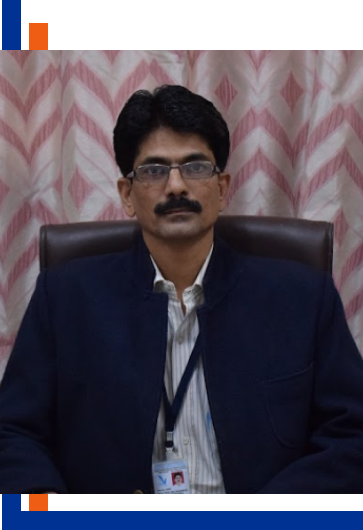Vision
To achieve excellence in chemical engineering education and research.
Mission
- To impart quality education preparing students for careers in conventional chemical engineering and niche areas such as advanced materials, environmental, biochemical and energy systems engineering.
- To create a vibrant research environment for carrying out multidisciplinary research in collaboration with reputed national and international organisations
- To inculcate entrepreneurship and managerial skills with effective industry–institute interaction
- To foster the holistic development of students and contribute to society by addressing social, economic and environmental aspects
Programme Education Objectives (PEO)
Graduates of the B. Tech. Chemical Engineering programme should be able to utilise the expertise gained from the programme to:
- Pursue industrial and research careers in a global environment
- Undertake a postgraduate programme successfully
- Contribute to multidisciplinary fields such as food and biotechnology, nanotechnology and advanced materials, energy and environmental engineering, product design and many more
- Develop and demonstrate a zeal for lifelong learning
- Function effectively in teams, displaying ethical conduct
Programme Outcomes
Engineering Graduates will be able to:
- Engineering knowledge: Apply the knowledge of mathematics, science, engineering fundamentals, and an engineering specialisation to the solution of complex engineering problems.
- Problem analysis: Identify, formulate, review research literature, and analyse complex engineering problems, reaching substantiated conclusions using the first principles of mathematics, natural sciences, and engineering sciences.
- Design/development of solutions: Design solutions for complex engineering problems and design system components or processes that meet the specified needs with appropriate public health and safety and cultural, societal, and environmental considerations.
- Conduct investigations of complex problems: Use research-based knowledge and research methods, including experiment design, data analysis and interpretation, and information synthesis, to provide valid conclusions.
- Modern tool usage: Create, select, and apply appropriate techniques, resources, and modern engineering and IT tools, including prediction and modelling, to complex engineering activities with an understanding of the limitations.
- The engineer and society: Apply reasoning informed by contextual knowledge to assess societal, health, safety, legal, and cultural issues and the consequent responsibilities relevant to professional engineering practice.
- Environment and sustainability: Understand the impact of professional engineering solutions in societal and environmental contexts and demonstrate the knowledge of and need for sustainable development.
- Ethics: Apply ethical principles and commit to professional ethics, responsibilities, and norms of engineering practice.
- Individual and team work: Function effectively as an individual, member, or leader in diverse teams and multidisciplinary settings.
- Communication: Communicate effectively on complex engineering activities with the engineering community and with society at large, such as comprehending and writing effective reports and design documentation, making effective presentations, and giving and receiving clear instructions.
- Project management and finance: Demonstrate knowledge and understanding of the engineering and management principles and apply these to one’s work as a member and leader in a team to manage projects and in multidisciplinary environments.
- Life-long learning: Recognize the need for and have the preparation and ability to engage in independent and life-long learning in the broadest context of technological change.
Programme Specific Outcomes (PSO)
Engineering Graduates will be able to:
- Work in chemical engineering organisations, demonstrating expertise in conventional chemical engineering design and operations.
- Work in diverse, multidisciplinary fields such as biotechnology, nanotechnology, food, energy, environmental, and product design.

Prof. Dr. Manik P. Deosarkar 
Head Of the Department

Chemical engineering involves applying physical science (mainly Chemistry and Physics) and Mathematics to convert raw materials into more useful and valuable forms. Chemical engineering involves designing and maintaining chemical processes for large-scale manufacture. Developing the large-scale processes characteristic of industrialised economies is a feat of chemical engineering. Indeed, chemical engineers are responsible for the availability of modern, high-quality materials essential for running an industrial economy. Chemical engineering is also concerned with pioneering valuable new materials and techniques, an important form of research and development. The Department of Chemical Engineering at Vishwakarma Institute of Technology was established in 1999. The students’ achievements have been prolific in academic, co-curricular and extra-curricular activities. The department headed by me, along with highly qualified and experienced doctoral staff, is engaged actively in enhancing industrially beneficial activities. It is a recognized R&D Centre for Chemical Engineering Sciences affiliated with Savitribai Phule Pune University(SPPU). The department is developing Biotechnology, Computer Aided Chemical Engineering, and Material Science & Technology niches. Leading companies that have been recruiting our students are Wipro Water, Forbes Marshall, Ansys Fluent, Toyo, VVF, Metito, L&T, Praj Industries, Uhde, Thermax, ESSAR, TATA Chemicals, Aquatech Systems, Sulzer, Elkay Chemicals, Supreme Petrochemicals, Gharda Chemicals, Deepak Nitrites
to name a few. The Centre of Engineering Excellence of the Chemical Engineering Department conducts a value-adding certificate course in: Pipe Stress Analysis (Includes CAESAR-II)
Board of Studies
The Board of Studies (BOS) plays a crucial role in the Department of Chemical Engineering. Its main goal is to develop and design a curriculum that can meet the ever-changing demands of the industry, research, and emerging technologies. The board comprises experienced faculty members, research scientists, industry experts, and alumni who work together to ensure the department’s balanced and seamless growth.
Industry Advisory Board
Mentors
International Mentor
Prof. (Dr.) Prashant Valluri 
Department of Chemical Engineering,
School of Engineering
Personal Chair in FLuid Dynamics and
Head of Graduate School
The University of Edinburgh, United Kingdom
national Mentor
Prof. (Dr.) Jitendra Sangwai 
Indian Institute of Technology, Madras
Professor, Department of Chemical Engineering,
Professor, Department of Chemical Engineering, IITM

